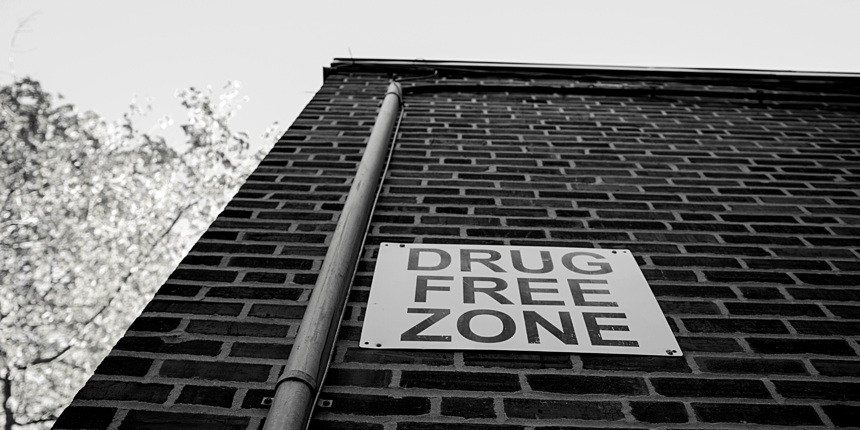All employers have a vested interest in maintaining workplaces free from substance abuse and can use their employment policies to achieve this. Often, these policies invoke state or federal laws. However, only a fraction of U.S. employers are actually required to comply with the federal Drug-Free Workplace Act of 1988. In fact, unless otherwise mandated by state law, only those companies receiving certain federal contracts and grants are required to comply with the requirements of the federal Drug-Free Workplace Act and its regulations. Before drafting or revising your company’s drug-free policies, make sure you know your compliance obligations under the Drug-Free Workplace Act.
What Is the Drug-Free Workplace Act?
The Drug-Free Workplace Act of 1988 requires federal contractors—including sub-contractors—, and any organization that receives a federal grant of any amount, to establish a drug-free workplace to qualify for and maintain federal contracts or grants.
The Act’s provisions apply to every federal grant or contract awarded to a company, including new applications, and cover any and all employees working directly on the grant or contract. While broad drug-free workplace policies are advisable, the Act does not mandate that employers have drug-free workplace policies for all employees who are not working on federal grants or contracts.
Who Is Required to Comply?
If your company is awarded a federal grant of any size, or a federal contract of $100,000 or more, excluding contracts for the procurement of commercial goods, and you are based on U.S. soil, you are required to comply with the federal Drug-Free Workplace Act. The Act covers contractors, absent a federal grant, if the contractor has at least one single contract worth $100,000 or more. You may also need to comply with state drug-free workplace laws depending upon your company’s size, status, and how those laws are applied.
The Department of Health and Human Services (HHS) offers training courses and other resources to assist companies in identifying whether they are subject to the Act and understanding their compliance obligations. These resources include free employee and supervisor education, information about written policies, and information about Employee Assistance Programs (EAPs). Employers should be aware that any compliance tools offered by the Department of Labor have been sunsetted and are no longer maintained by the federal government.
How Federal Contractors Can Comply with the Drug-Free Workplace Act
The Drug-Free Workplace Act generally requires that covered employers:
- adopt a drug-free workplace policy;
- establish a drug-free awareness program; and
- provide access to counseling and rehabilitation programs.
If you are considered a covered employer, you must release a statement to employees stating that the illegal production, distribution, dispensation, possession, or use of controlled substances in the workplace is prohibited. You must also outline the procedure your company will follow if an employee is found in violation of this prohibition. Federal grants and contracts will be awarded only to individuals and companies who comply with this requirement. Grants and contracts may also be suspended or revoked for non-compliance.
Meeting Compliance Obligations
Whether you use the HHS tools or those of a third-party consultant, if you are a federal contractor, your company needs to create drug-free awareness programs to educate employees on the dangers of substance use. Employees should be informed of any disciplinary actions that you will impose should they violate drug-free workplace policies.
Your company should ensure that employees, especially those involved in a federal grant or contract, receive any statement or policies communicated under your Drug-Free Workplace Act obligations. Additionally, it is your responsibility to ensure that employees understand that abiding by the terms of your statement is a condition of employment.
Employee Obligations
Employees have obligations under the Drug-Free Workplace Act as well. If they are convicted of any drug-related offense, employees of federal contractors are obliged to inform their employer within five days. After receiving such notice, your company must notify the contracting agency within ten days of receiving notice from the employee or the actual conviction, whichever comes first.
Your company must sanction the employee or require the convicted employee to participate in a drug rehabilitation program. To remain in compliance, your company should take steps to continually maintain a drug-free environment.
Summary
While the federal Drug-Free Workplace Act applies only to grantees and to federal contractors who have received$100,000 or more in funds from the federal government, all employers should consider policies that ensure a drug-free workplace. In some cases, state laws may require drug-free workplace policies for all employers within the state. In other cases, employer mission statements or investor preferences may influence your company’s drug-free workplace policy. Whether desired or required, if you have a drug-free workplace policy in place, be sure you are maintaining both employer and employee compliance with your policies as well.
